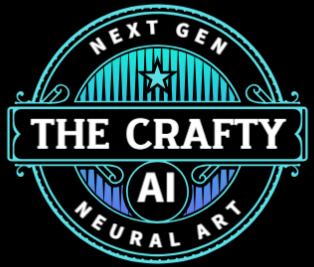Claude, developed by Anthropic, is a conversational AI model designed to compete with the likes of ChatGPT while prioritizing safety, ethics, and helpfulness. Launched by former OpenAI researchers, including Dario Amodei, Anthropic aims to create an AI that is not only powerful but also aligned with human values through its unique "Constitutional AI" approach. This article explores Claude’s features, capabilities, applications, and how it stands out in the crowded AI landscape.
What is Claude?
Claude is a family of large language models (LLMs) that excel in natural language processing (NLP), capable of handling text, audio, and visual inputs (in its latest iterations). The Claude 3 series, released in May 2024, includes three models: Claude 3.5 Sonnet (free), Claude 3 Opus, and Claude 3 Haiku (premium). Each model caters to specific use cases, from rapid responses for daily tasks to in-depth analysis for complex projects. Claude can process up to 200,000 tokens—roughly 350 pages of text—surpassing competitors like GPT-4’s 128,000-token limit, enabling it to handle extensive documents with remarkable context retention.
Key Features
Ethical Framework (Constitutional AI): Unlike traditional AI models fine-tuned solely with human feedback, Claude employs Constitutional AI, a method where the model adheres to a set of ethical principles. This ensures responses are safe, respectful, and avoid harmful or biased outputs. For instance, when prompted with unethical requests, Claude self-corrects to align with its ethical guidelines, making it a preferred choice for sensitive applications.
Multimodal Capabilities: Claude 3 and beyond can process images and audio alongside text, enabling tasks like generating product descriptions from images or summarizing handwritten notes. This multimodality broadens its utility in creative and professional settings.
Claude Projects: A standout feature for Claude Pro users, Projects allows users to create customized AI assistants by uploading brand documents, style guides, or data sets. This ensures outputs align with specific tones or business goals, making it ideal for content creators and businesses.
Integration and Accessibility: Claude integrates with tools like Google Workspace, Notion, and Slack, allowing users to analyze emails, calendars, or project files without manual uploads. It’s available on web, iOS, and Slack, with API access for developers.
Coding and Analysis: Claude excels in code generation, debugging, and data analysis. It can write code in languages like Python or JavaScript, optimize algorithms, and analyze large datasets, making it a valuable tool for developers and researchers.
Applications
Education: Students use Claude to brainstorm essay topics, summarize research, or receive feedback on drafts. Its ethical focus ensures reliable, unbiased assistance.
Content Creation: Writers leverage Claude for drafting articles, refining tone, or creating SEO-optimized content. Its ability to maintain a consistent voice is particularly valued.
Business and Legal: Claude aids in drafting reports, analyzing contracts, or summarizing clinical trial data, ensuring confidentiality and precision.
Coding: Developers benefit from Claude’s ability to debug, explain complex code, or generate snippets, streamlining workflows.
Research: Claude’s large context window and summarization capabilities make it ideal for synthesizing vast amounts of data, from academic papers to market research.
Strengths
Safety and Ethics: Claude’s Constitutional AI minimizes harmful outputs, making it suitable for industries like healthcare and law.
Context Retention: Its 200,000-token capacity allows for nuanced, context-aware responses.
Customization: Projects enable tailored AI assistants, enhancing productivity for niche tasks.
Speed and Accuracy: Claude 3 Haiku offers rapid responses, while Opus provides in-depth analysis with fewer hallucinations.
Limitations
No Real-Time Web Access: Unlike some competitors, Claude relies on its training data, which may lag behind current events.
Learning Curve for Prompting: Achieving optimal results requires clear, detailed prompts, which may challenge beginners.
Limited Feature Variety: While versatile, Claude lacks some specialized features like image generation offered by alternatives.
Claude vs. Competitors
Compared to ChatGPT, Claude offers a larger context window and prioritizes safety but lacks real-time internet access. Its ethical focus and integration capabilities make it a strong alternative for professional settings. Google’s Gemini, while competitive in vision tasks, doesn’t match Claude’s text-processing capacity.
Conclusion
Claude represents a paradigm shift in AI assistants, blending cutting-edge technology with an ethical foundation. Its versatility, from coding to content creation, and its focus on safety make it a compelling choice for students, professionals, and businesses. As Anthropic continues to innovate, Claude is poised to redefine how we interact with AI, offering a reliable, human-centric tool for a wide range of applications.
Pricing
For the latest pricing, go to the Claude website here.

